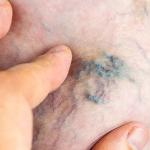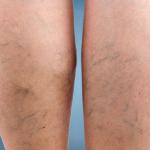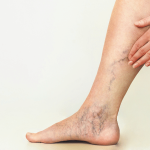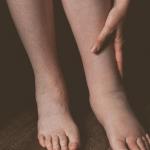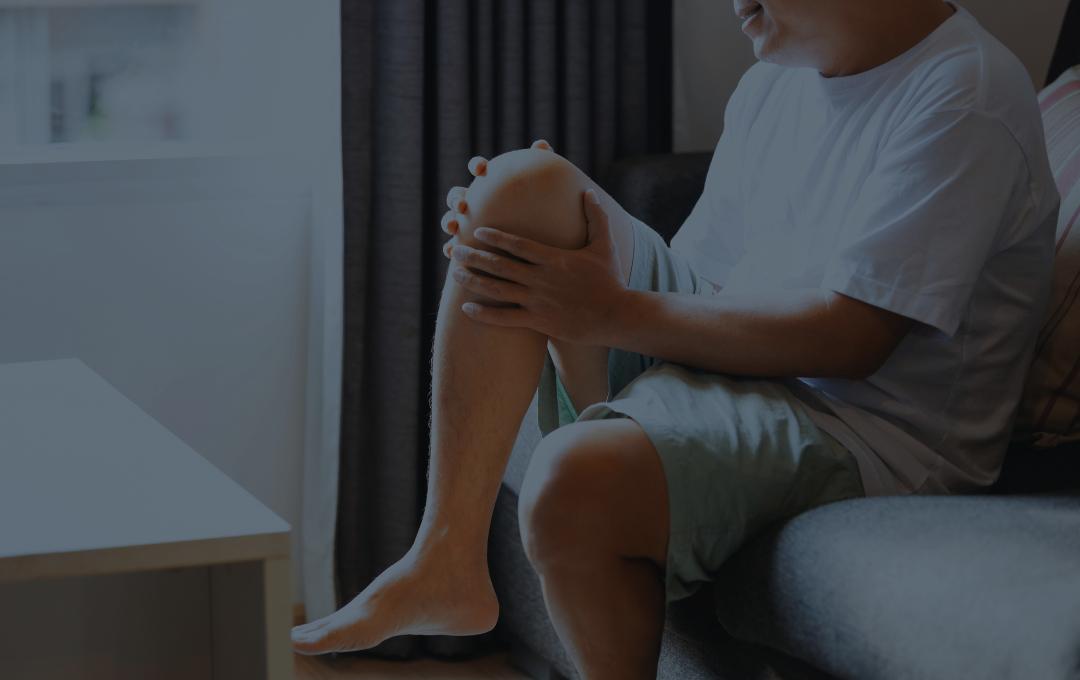
Do you ever wonder why your legs hurt at night or why they feel sore and achy when you’re trying to sleep? Maybe you experience sudden, sharp leg cramps that wake you up in the middle of the night. While there are many possible explanations for leg pain at night, the presence of varicose veins is a common one.
Varicose veins are twisted, swollen veins can lead to significant pain and discomfort. They can also affect your quality of sleep.
Varicose veins are also a sign of underlying vein disease. Vein disease occurs when vein valves malfunction and cause blood to pool. As a result, you may notice pain, swelling, heaviness, itching, or burning in your legs. These symptoms can worsen at night, particularly after an active day on your feet.
For some, venous insufficiency can lead to dangerous health issues like blood clots and venous ulcers (open, non-healing wounds). Others may suffer from chronic Restless Leg Syndrome (RLS), which involves the uncontrollable urge to move the legs around. Symptoms of RLS also tend to worsen at night.
Common symptoms of vein disease include:
- Swelling in the legs and ankles
- Tired, aching legs
- Burning in the calf or thigh
- Leg pain that feels better when you walk or raise your legs
- Itchy, dry skin
- Numbness or tingling sensation
- Difficulty standing for long periods
- Non-healing wounds on your legs
- Leg pain at night
If left untreated, vein disease can lead to complications such as leg ulcers and dangerous blood clots. If your varicose veins are causing you leg pain at night, USA Vein Clinics can offer options for vein treatment. Treatment for vein disease can help ease your leg pain at night while also limiting your risk of complications.
5 Questions to Evaluate Vein Health
What Causes Leg Pain at Night?
The best way to answer that question is to see a vein specialist. They can review your symptoms, perform an examination, and order imaging tests like an ultrasound or MRI. Generally speaking, a proper medical diagnosis is key to finding an effective treatment.
Muscle Overexertion
If you’ve been especially active during the day, you may be more likely to develop sore legs at night. Leg elevation, stretching, massage, soaking in a hot tub, and taking over-the-counter anti-inflammatory medications like Ibuprofen or Aleve may help. This is usually no cause for concern.
Inactivity
On the reverse side, you may spend your days standing or sitting for prolonged periods. This ongoing lack of activity can also result in aching legs at night and increase your risk of developing vein disease. When stuck in one place throughout the day, be sure to take frequent breaks and move around. You can also exercise in place by moving your ankles in circles or doing calf raises.
Underlying Medical Conditions
Many health issues can cause leg pain at night. Some of these include pregnancy, neurological issues, blood clots, arthritis, injury, infection, and vascular disease. If you experience ongoing leg pain, please contact your doctor as soon as possible. Some potential causes, such as deep vein thrombosis (DVT), can be life-threatening and require immediate medical attention.
Relieving Night-Time Pain From Varicose Veins
If varicose veins are impacting your sleep, there are some things you can try that may help. To relieve your leg pain, we recommend that you:
- Elevate your legs at the end of the day.
- Sleep with your feet raised on a pillow or two.
- Avoid prolonged periods of sitting or standing.
- Move around more throughout the day.
- Follow a regular exercise program.
- Lose any excess weight.
- Manage other health conditions like high blood pressure and diabetes.
- See a vein specialist for your varicose veins.
Although some of these options may temporarily alleviate your symptoms, only varicose vein treatment can eliminate them.
Varicose Vein Treatment with USA Vein Clinics
Instead of living in pain with aching legs, we suggest that you turn to the experts for help. USA Vein Clinics’ vein specialists care about your overall vein health. We are readily available to develop an individualized plan of care for painful varicose veins.
Your plan may include one or more of our effective, minimally-invasive, office-based varicose vein treatments:
- Endovenous Laser Therapy (EVLT)
- ClariVein®
- Varithena Vein Treatment
- Ultrasound-guided sclerotherapy
- Sclerotherapy for spider veins
- VenaSeal™
- Radiofrequency Ablation (RFA)
Our advanced vein procedures aim to collapse malfunctioning veins and divert blood flow to healthy, surrounding ones. Over time, the diseased veins are fully absorbed by the body while painful symptoms are reduced or disappear entirely.
Vein treatment typically is covered by most major insurance plans. You can leave immediately after your procedure and return to most normal activities. After varicose vein treatment, you can enjoy more peaceful, pain-free, and restful nights. Schedule an appointment today to get started.
Schedule Your Consultation Today
*Last Reviewed 12/4/2024


